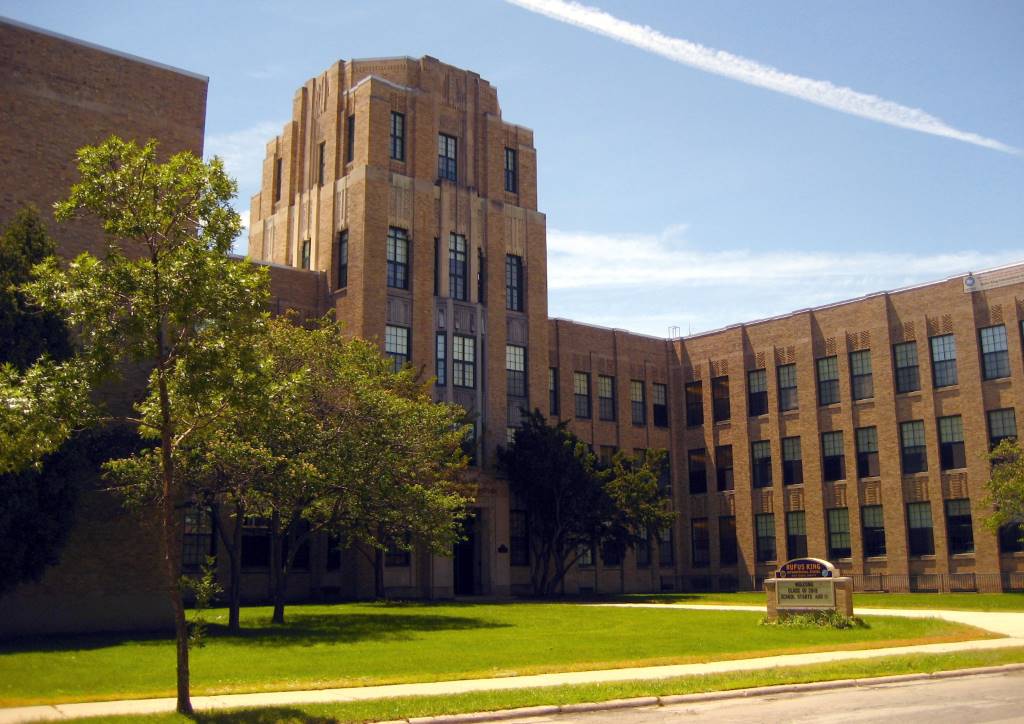GOP Legislators Question Federal Pandemic Aid for MPS
MPS getting 36% of $2.2 billion for state schools under federal formula prioritizing high poverty districts.
Republicans who run the Legislature’s budget committee used a forum with Wisconsin’s superintendent of schools Tuesday to criticize federal school aid payments during the coronavirus pandemic, suggesting it could play a role in the education budget they pass later this year.
Gov. Tony Evers called for increasing state funding for schools by roughly $1.6 billion in his latest budget proposal. That’s on top of the $2.2 billion in federal funding set aside for Wisconsin schools through multiple coronavirus relief packages passed over the past year, both under former President Donald Trump and President Joe Biden.
State Sen. Howard Marklein, R-Spring Green, one of the co-chairs of the budget committee, said that was more than five times as large as the $2,213 per pupil in federal funds going to Lancaster Community Schools in his Senate district. During a budget briefing Tuesday, Marklein told state Superintendent of Public Instruction Carolyn Stanford Taylor that Lancaster had been instructing kids in-person while Milwaukee instruction had remained largely virtual during the pandemic.
“I guess my question to you is: Is that fair?” Marklein asked.
But for the most part, the decision on how to spend that funding is out of the state’s hands. Ninety percent of the school funds in both the Trump and Biden relief plans were distributed using a formula that prioritizes districts with high poverty levels, according to the Legislature’s budget office and the Department of Public Instruction.
“These are one-time dollars that were given to states to help address the issue of the pandemic,” Taylor said. “Different people have had different approaches.”
Taylor stressed that the federal funding should not affect the rest of the governor’s education budget, including his nearly $710 million increase in special education funding.
“This is money that’s going to be spent,” said Rep. Evan Goyke, D-Milwaukee, who sits on the budget committee. “It’s just a matter of which programs are going to be cut locally if the state doesn’t increase its reimbursement.”
Republicans approved a roughly $500 million increase in state funding for schools in the last budget, which was about $900 million less than Evers wanted. While they’ve yet to indicated how much they’re willing to spend on schools in the current budget, they have indicated it will be smaller than the governor’s plan.
Just how much smaller, they say, could hinge in part on federal school funding, and how Evers spends an additional $3.2 billion in federal funds for state government.
“The federal money is definitely impacting things,” said budget committee co-chair Rep. Mark Born, R-Beaver Dam. “Education’s a priority, but we need to figure out how this federal money impacts that.”
Taylor said the federal funding had helped schools weather the pandemic, sometimes with one-time projects like improvements to their ventilation systems. But she said that challenges that existed before, like an achievement gap for students of color, could be worse once the pandemic is over.
Marklein also pressed Taylor on how her agency had operated during the pandemic. She said that before COVID-19, around 400 employees might be working in DPI’s downtown Madison office building. She said that fewer than 10 were probably working in-person Tuesday with the vast majority working remotely. The agency would start to bring staff back on April 16, she said.
“How would you characterize the productivity of your staff working remotely in the last year?” Marklein asked.
“I don’t know that we’ve missed a beat,” Taylor said.
Listen to the WPR report here.
GOP Lawmakers Press Wisconsin Schools Chief On Federal Relief Funds was originally published by Wisconsin Public Radio.
More about the Coronavirus Pandemic
- Governors Tony Evers, JB Pritzker, Tim Walz, and Gretchen Whitmer Issue a Joint Statement Concerning Reports that Donald Trump Gave Russian Dictator Putin American COVID-19 Supplies - Gov. Tony Evers - Oct 11th, 2024
- MHD Release: Milwaukee Health Department Launches COVID-19 Wastewater Testing Dashboard - City of Milwaukee Health Department - Jan 23rd, 2024
- Milwaukee County Announces New Policies Related to COVID-19 Pandemic - County Executive David Crowley - May 9th, 2023
- DHS Details End of Emergency COVID-19 Response - Wisconsin Department of Health Services - Apr 26th, 2023
- Milwaukee Health Department Announces Upcoming Changes to COVID-19 Services - City of Milwaukee Health Department - Mar 17th, 2023
- Fitzgerald Applauds Passage of COVID-19 Origin Act - U.S. Rep. Scott Fitzgerald - Mar 10th, 2023
- DHS Expands Free COVID-19 Testing Program - Wisconsin Department of Health Services - Feb 10th, 2023
- MKE County: COVID-19 Hospitalizations Rising - Graham Kilmer - Jan 16th, 2023
- Not Enough Getting Bivalent Booster Shots, State Health Officials Warn - Gaby Vinick - Dec 26th, 2022
- Nearly All Wisconsinites Age 6 Months and Older Now Eligible for Updated COVID-19 Vaccine - Wisconsin Department of Health Services - Dec 15th, 2022
Read more about Coronavirus Pandemic here






















